I wanted to ask one more question before I left, so I stopped at Miss Rheingold’s desk, where she sat on the edge watching the class converge on the door, pass through it, and expand into the hall. “Venturi,” she muttered.
“Miss Rheingold?” I said.
She pressed a hand to her honeydew brow. “Peter,” she said. “I hope this isn’t another question about mousetraps.”
“No,” I said. “Oh, no.” Actually, I had wanted to ask if the traps had to be aligned precisely as those in the film had been and, if so, whether it might be possible for me to come back after school and see Quanto the Minimum again so I could memorize the arrangement, but I could tell from the way she ran her fingers through her shandy hair that for some reason Miss Rheingold didn’t want to talk about mousetraps, and I certainly didn’t want to annoy her, so I said, “No, no. It’s about my question, ‘Where do you stop?’ I tried to find the answer in the library, but they don’t have any books there that have anything about it. All their books are kind of simple.”
She smiled. I was pleased to have caused it.
“I think I can help you,” she said.
The smile that came to her lips, the twinkle that came to her eye told me that my discovery that the library’s books were too simple for the Big Questions had all been part of her plan for me. I was supposed to discover that the question took me beyond the obvious sources. I was supposed to come to her, or to go elsewhere, but in any event to expand my horizons. I must be getting somewhere, I reasoned. She went to the storeroom and returned with a book even thicker and heavier than our general science text.
“Try this,” she said.
It was called Elementary Introductory Physics Made Easy for Beginners (Book One). I tried to read it. I really did. My problem was that I understood only a portion of what I read, and the portion I understood was not the portion that conveyed most of the meaning. I moved my eyes along the sentences, did my best to pronounce the words, and used my dictionary quite a lot, but so much of what I read was incomprehensible to me that, in a way, my reading brought me closer to my father, because for the first time I really understood what he meant when he said, as he often did, “It’s Greek to me.” Here is a passage from the book as it appeared to me then, which is exactly the way I still recall it:
It resembles coleslaw: discontinuous but recognizable shreds of cabbage in an indescribably complex entanglement, with an opaque sauce that almost fills the Zwischenraum. Remarkably, I managed to derive two ideas from the first chapter. They were these:
Things get very much more difficult to understand as you get very much closer to them.
As Quanto said, “Most of everything is nothing.”
[to be continued]
In Topical Guide 595, Mark Dorset considers Language: Idioms: English: “It’s Greek to me.”from this episode.
Have you missed an episode or two or several?
You can begin reading at the beginning or you can catch up by visiting the archive or consulting the index to the Topical Guide. The Substack serialization of Little Follies begins here; Herb ’n’ Lorna begins here; Reservations Recommended begins here; Where Do You Stop? begins here.
You can listen to the episodes on the Personal History podcast. Begin at the beginning or scroll through the episodes to find what you’ve missed. The Substack podcast reading of Little Follies begins here; Herb ’n’ Lorna begins here; Reservations Recommended begins here; Where Do You Stop? begins here.
You can listen to “My Mother Takes a Tumble” and “Do Clams Bite?” complete and uninterrupted as audiobooks through YouTube.
You can ensure that you never miss a future issue by getting a free subscription. (You can help support the work by choosing a paid subscription instead.)
At Apple Books you can download free eBooks of Little Follies, Herb ’n’ Lorna, and Reservations Recommended.
You’ll find overviews of the entire work in An Introduction to The Personal History, Adventures, Experiences & Observations of Peter Leroy (a pdf document) and at Encyclopedia.com.





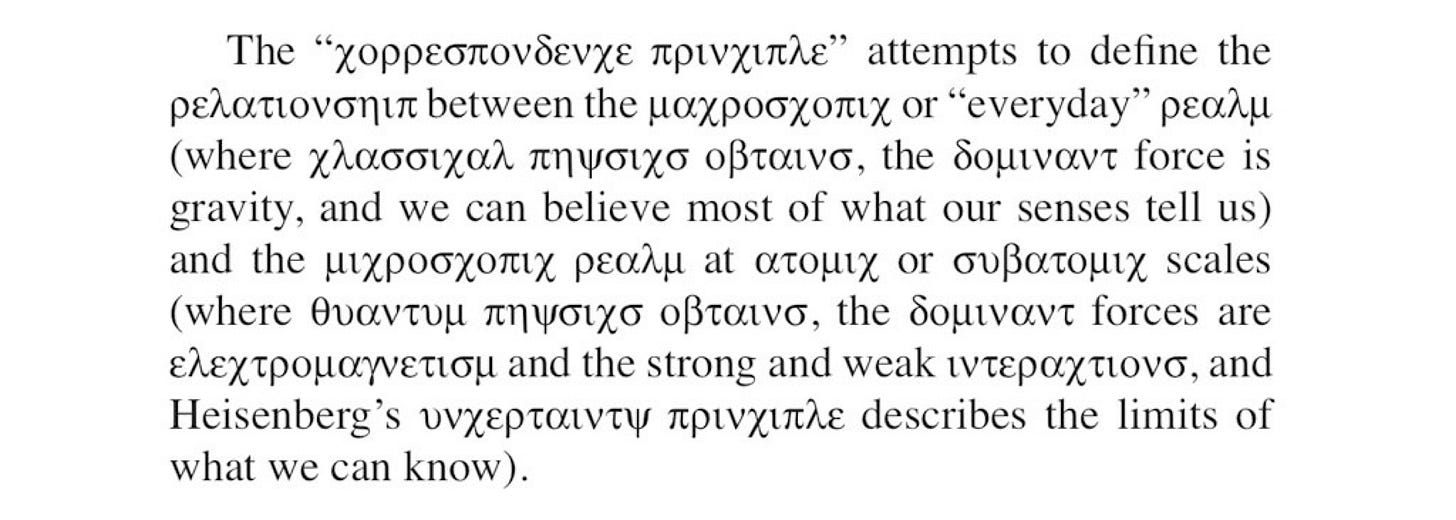




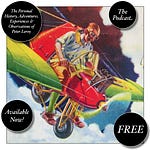
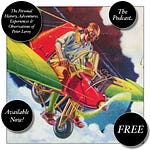
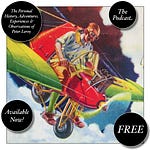
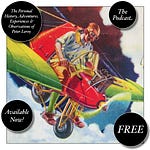

Share this post